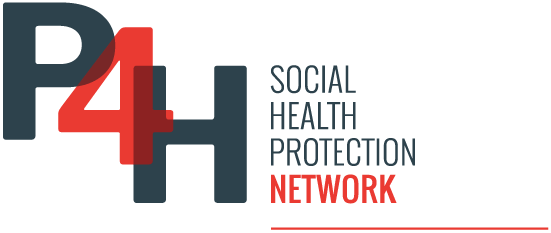The number of documents available on the P4H Network’s digital platform reflects the network’s scope of work. The majority of documents are primary source materials created by country nationals or resources produced by organizations working in social health protection (SHP) and/or health financing (HF).
The Dominica health strategic plan (2010-2019) – Vol 1
A health situation analysis was conducted as the basis for the 2010-2019 Dominica health strategic plan. Health financing component is included in section 5 “Resources for Health”.
Armenia Health system review
This analysis of the Armenian health system reviews the developments in organization and governance, health financing, healthcare provision, health reforms and health system performance since 2006.
Healthcare in transition in the Republic of Armenia: the evolution of emergency medical systems and directions forward
Armenia has made remarkable strides in development, showing differential growth in varied sectors in Armenia. Emergency systems is one of the sectors which is neglected in the current drive to modernize. The development of emergency care systems is an extremely...
Public opinion about the health care system in Armenia: findings from a cross-sectional telephone survey
The study conducted by Tsovinar Harutyunyan and Varduhi Hayrumyan in Armenia evaluated public satisfaction with the healthcare system through a phone survey of 576 Yerevan residents. Results revealed 45.5% dissatisfaction and 49% negative views on equal access....
Health System Financing in Colombia: Sources and Uses
The article highlights that the health sector in Colombia has faced various financial and administrative problems that have increased the need for fiscal resources for its financing. The main sources of financing are the contributions to the contributory system made...
Essential package of health services for Universal Health Coverage
The Essential Package of Health Services (EPHS) is a strategic initiative by Liberia's Ministry of Health (MOH) aimed at providing prioritized, high-impact health interventions within the country's available resources. Due to fiscal constraints, the MOH developed the...
Health Sector Program 2020-2024
The Health Sector Program 2020 - 2024 is a program derived from the National Development Plan 2019-2024, which establishes the objectives, strategies and actions with which the different institutions of the Federal Public Administration are governed in order to...
The task force on fiscal policy for health report 2024
The Task Force on Fiscal Policy for Health has released a report emphasising the urgent need to raise health taxes to combat the global burden of non-communicable diseases (NCDs). Co-chaired by Mike Bloomberg, Prime Minister Mia Amor Mottley of Barbados, and economist...
ISSA Country profiles: Equatorial Guinea
Policies as of 1 July 2022. Updated via a country survey and desk review.
Mexico’s Health System: Achievements and Challenges 2015-2022
It highlights that the health system in Mexico has undergone changes in its organization, governance and faces challenges in the health profile to achieve universal health coverage. It includes a description of the structure of the health system, medicines, technology...
World Bank: Equatorial Guinea overview
Equatorial Guinea’s economy contracted by an estimated 5.8 percent in 2023, mainly due to declining oil reserves. The fiscal and external balances deteriorated amid declining oil export earnings. The economy is projected to remain in reces- sion over the medium term....
The Health Care System in Equatorial Guinea
The Collaborative Research Centre 1342 "Global Dynamics of Social Policy" is an association of eight research institutions at the University of Bremen, cooperating with Jacobs University Bremen, the University of Duisburg-Essen and the University of Cologne. The CRC...
Health Care Financing Law of Latvia, effective since January 2018
This law was adopted on 14.12.2017, and is effective since 01.01.2018. The Health Care Financing Law of Latvia relies on related two laws: the Medical Treatment Law and the Law on Patients' Rights. The purpose of this law is to ensure sustainable health care...
Emergency Economic Measures for Strengthening the National Social Protection System and Supporting SMEs
Decree N.43/2020, dated March 31, 2020, adopting Urgent Economic Measures for the Strengthening of the National System of Social Protection and Support to the SMEs. This Decree includes a series of urgent measures that the Government adopts, in the current fiscal...
Equatorial Guinea: Regulations of the General Social Security System
Decree no. 100/1.990, dated September 28, 1990, approving the Regulations of the General Social Security System.
